In the rich tapestry of spiritual practices across Buddhism, Hinduism, and other ancient traditions, Karungali Malai has garnered significant attention. This sacred mala, often misunderstood, is a revered spiritual tool for some, while others approach it with skepticism. But how do we truly understand whether Karungali Malai is good or bad? To explore this, we’ll delve into its history, spiritual significance, potential benefits, and the various perspectives that surround it.
What is Karungali Malai?
Understanding its Roots and Meaning
Karungali, known for its dark, almost black hue, is a type of wood often used in malas (prayer beads) within both Hindu and Buddhist traditions. The word “Karungali” itself translates to ‘black wood,’ signifying the strength and protective nature attributed to this material. Its cousin, Sengali, which shares similar properties but a lighter hue, also holds its place within these spiritual traditions. Both woods are commonly used to craft malas or bracelets that are believed to enhance spiritual practices.
In Hinduism, the mala (whether Karungali, Sengali, or Rudraksha) is more than just a piece of jewelry; it is a spiritual tool. The beads are often counted during meditation, aiding practitioners in their spiritual journey. In Buddhism, it serves as a reminder of mindfulness, supporting the path to enlightenment.
The Spiritual Significance of Karungali
Protection, Healing, and Spiritual Elevation
The belief in Karungali Malai is deeply rooted in its protective properties. Many spiritual practitioners across India and Sri Lanka wear Karungali Malai for its perceived ability to ward off negative energies, evil spirits, and ill intentions. The dark, dense wood is thought to absorb negative vibrations, allowing the wearer to move through life with a sense of calm and protection.
Personal Anecdote: A Spiritual Encounter with Karungali
I once encountered a devotee who shared their experience with Karungali Malai. Battling anxiety and constant emotional unrest, they turned to Karungali beads, recommended by their guru. After several months of wearing the mala during meditation, they noticed a profound change in their emotional state. The heaviness in their heart began to lighten, and they found themselves more focused and grounded during their spiritual practices. This personal account is just one of many, illustrating how Karungali Malai resonates with individuals on a deeper, spiritual level.
Benefits of Wearing Karungali Malai
A Symbol of Protection, Purity, and Power
- Protection from Negative Energies
Karungali is often regarded as a powerful shield against negativity. Wearing it is believed to create an energetic barrier, safeguarding the wearer from evil spirits and harmful intentions. In an age where mental clarity is often clouded by daily stress and challenges, many wear Karungali as a talisman of protection. - Enhancing Spiritual Practices
For those who meditate or practice mindfulness, Karungali beads offer more than protection—they are considered amplifiers of concentration and focus. By holding or wearing the beads during spiritual practices, individuals report heightened states of meditation and a deeper connection with their inner selves. - Grounding Energy
One of the most significant qualities of Karungali is its grounding nature. Its dark, dense wood is symbolic of stability and earth energy. Those who wear it often feel more connected to the earth, fostering balance in their mental, emotional, and spiritual lives. - Healing Power
Some traditions associate Karungali with physical healing. In Ayurveda, the wood is believed to help balance the body’s doshas (energy types). It’s considered especially effective for individuals experiencing anxiety, insomnia, or stress-related ailments.
Counterarguments: Is Karungali Malai Bad?
Despite its many purported benefits, not everyone believes that Karungali Malai is wholly good. Critics argue that the perception of Karungali’s benefits is largely anecdotal and lacks scientific validation. They emphasize the importance of discerning between spiritual symbolism and tangible effects. There are also some who avoid Karungali due to its association with intense, dark energies, believing that it may invite an excessive focus on the negative aspects of life if misused.
Can Karungali Have Negative Effects?
As with any spiritual tool, intention plays a significant role in its efficacy. While Karungali is widely revered, it’s also essential to note that it must be used with respect and the right mindset. In rare cases, those who approach the mala with negative intentions or misuse it could find themselves feeling overwhelmed by its strong, protective energy. This, however, is more of a spiritual caution than an outright negative effect.
Comparisons with Rudraksha and Sengali
Karungali vs. Rudraksha: Which is Right for You?
For those already familiar with Rudraksha beads, which are deeply linked to the worship of Lord Shiva, you may wonder how Karungali compares. While both malas are revered, they serve different purposes. Rudraksha is often worn for its association with spiritual awakening, mental clarity, and connection to divine energy. On the other hand, Karungali is more focused on protection and grounding.
For those seeking both protection and spiritual growth, combining Karungali with Rudraksha beads can offer a holistic approach. Sengali, while lighter in hue, shares the grounding properties of Karungali and is often preferred for those who may not feel as comfortable with the deeper, denser energy of Karungali.
Historical Context and Cultural Significance
Karungali’s Role in Ancient Traditions
Karungali’s use in malas can be traced back to ancient traditions where nature was seen as a direct channel to divine energy. In both Buddhism and Hinduism, certain trees and woods were believed to embody specific energies. Karungali, with its strong and protective aura, was used by monks and ascetics as a safeguard during deep meditation, particularly in remote or forested areas where spiritual energies were considered stronger.
Insights from Experts
According to Dr. Uma Maheshwari, a scholar of Hinduism and spiritual traditions, “Karungali represents a bridge between the material and spiritual worlds. Its protective energy is not just symbolic but deeply rooted in ancient practices where nature was regarded as an integral part of spiritual development.”
Is Karungali Overrated?
Some argue that the growing popularity of Karungali is more of a trend than a genuine spiritual tool. With the rise of online spirituality shops, many people are purchasing Karungali Malai without truly understanding its purpose or origin. However, this isn’t necessarily a negative trend. If anything, it showcases a renewed interest in ancient spiritual practices. The key is ensuring that individuals approach Karungali with respect and a clear understanding of its intended use.
Karungali Malai – Good or Bad?
So, is Karungali Malai good or bad? Ultimately, the answer depends on the intention behind its use. For those who wear it with reverence and an understanding of its protective, grounding, and spiritual properties, Karungali is undoubtedly a powerful ally on the spiritual path. However, as with any tool, misuse or misunderstanding can lead to unwanted effects.
For seekers interested in spiritual tools that offer protection, grounding, and a deep connection to ancient traditions, Karungali Malai is a compelling choice. Whether you’re looking for spiritual enhancement or simply a way to shield yourself from negativity, this sacred wood has much to offer.
You can explore Karungali and Sengali products at spiritualguru.lk and start your spiritual journey today.

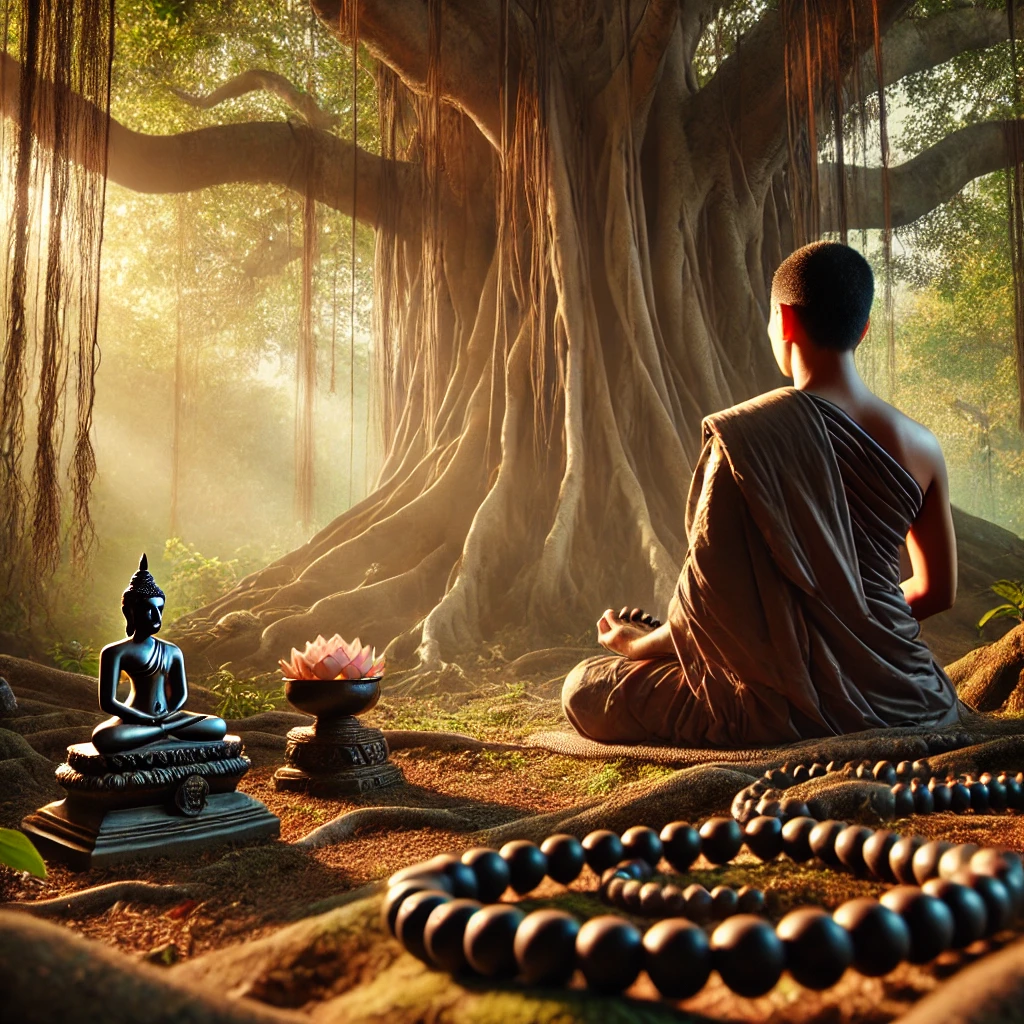
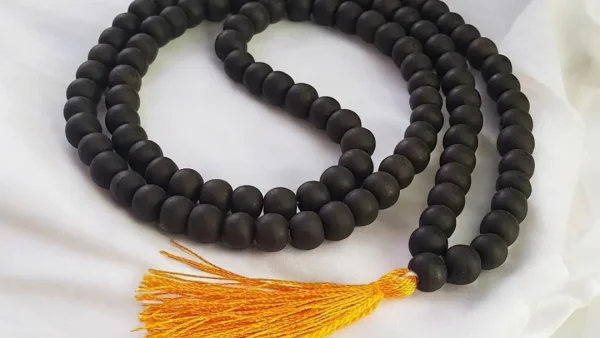
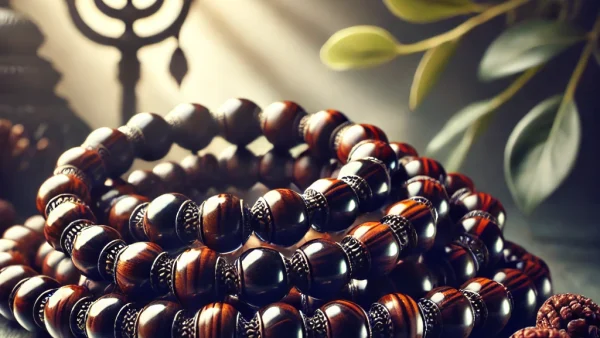

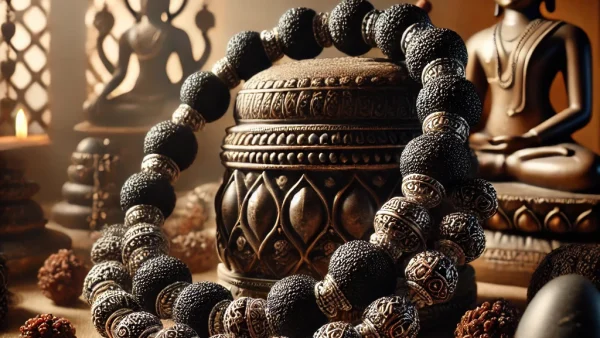
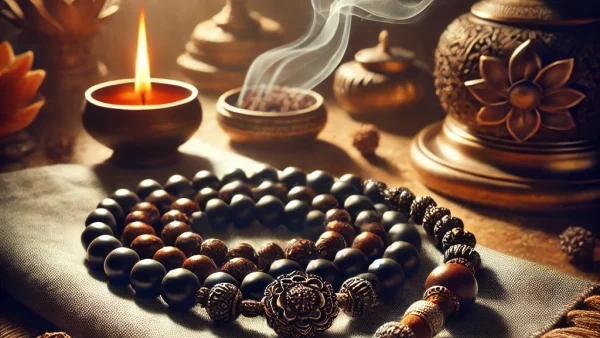
Pingback: How to Energize Karungali Mala / Bracelet - Spiritual Guru